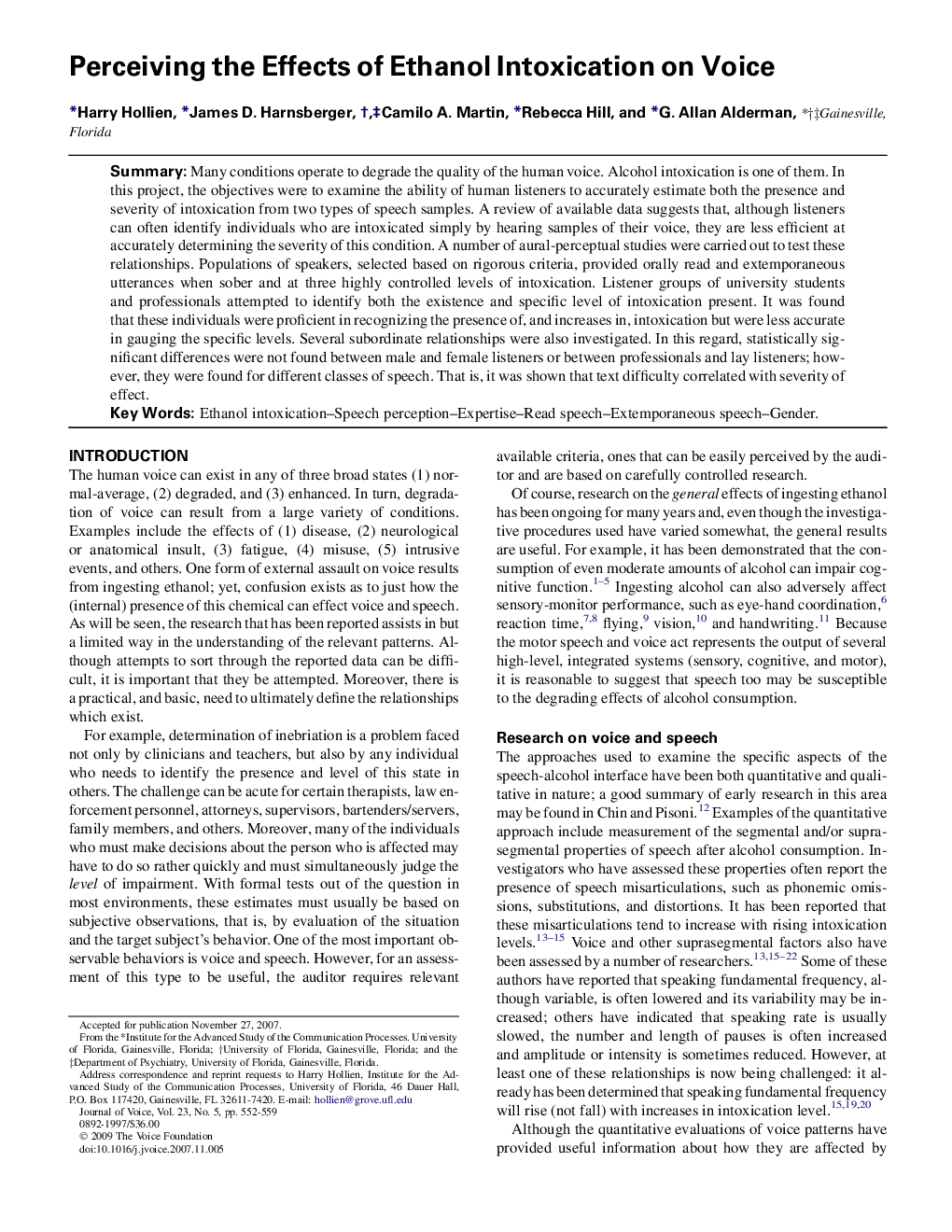| Article ID | Journal | Published Year | Pages | File Type |
|---|---|---|---|---|
| 1102216 | Journal of Voice | 2009 | 8 Pages |
SummaryMany conditions operate to degrade the quality of the human voice. Alcohol intoxication is one of them. In this project, the objectives were to examine the ability of human listeners to accurately estimate both the presence and severity of intoxication from two types of speech samples. A review of available data suggests that, although listeners can often identify individuals who are intoxicated simply by hearing samples of their voice, they are less efficient at accurately determining the severity of this condition. A number of aural-perceptual studies were carried out to test these relationships. Populations of speakers, selected based on rigorous criteria, provided orally read and extemporaneous utterances when sober and at three highly controlled levels of intoxication. Listener groups of university students and professionals attempted to identify both the existence and specific level of intoxication present. It was found that these individuals were proficient in recognizing the presence of, and increases in, intoxication but were less accurate in gauging the specific levels. Several subordinate relationships were also investigated. In this regard, statistically significant differences were not found between male and female listeners or between professionals and lay listeners; however, they were found for different classes of speech. That is, it was shown that text difficulty correlated with severity of effect.
